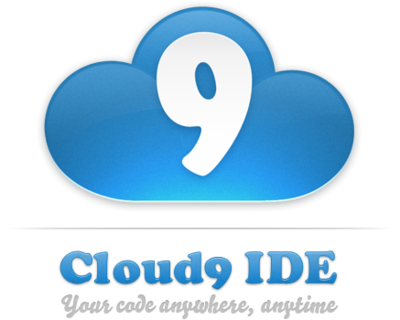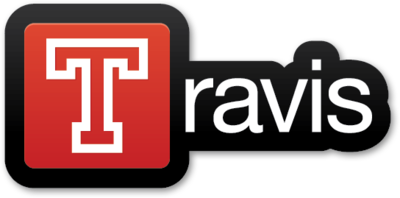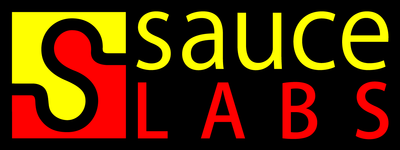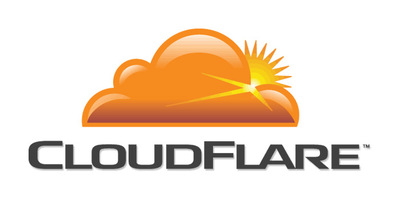Review of free services for web development
The post is a personal collection of useful and necessary online services that allow you to create really cool things for free (or shareware for free) and deploy them on the Web. I do not pretend to be new or complete, but I will be happy if someone comes in handy.
All of us sometimes want to try a new idea, gash some saytik about manulov, but to be sure on node.js, hayload redi, with memok, mongo, filer and with a claim to world domination. I have good news for you: thanks to the generosity of the damned Western capitalists, all this can be obtained completely free of charge.

The first thing that every IT fighter who takes the path of seizing world domination has to do is create an account on a githaba. Who is not in the subject is an online version control system based on distributed vcs git. There is a powerful social component on the githaba - you can subscribe to other people's repositories and changes, fork projects (that is, create branches of the source code with your own changes). Offer your changes to the developers of your favorite software with the help of pull-requests, there is a simple bugtracker, code review. Github has the ability to interact with svn, but svn is for grandpas. Githib is free until you want to hide the repository from prying eyes. But you have nothing to hide and shy, right? Alternatives to github exist, (for example, bitbucket ), but they are not kosher.

Mockingbird Mockingbird (from mockup - sketch, layout) is an online tool for creating interface sketches. You can right in the browser to throw buttons, input fields, sliders and other tripe. It is convenient to prototype interfaces, and apply to the task for the maker-up. For free, you can only have one project with 10 pages, but this is often enough.
')

JSFiddle is an online tool for experimenting with js, css, html. The working area consists of 4 windows, - html, js, css and the result. In the first 3 we write our code (there is syntax highlighting) and in the fourth there is the result of rendering, with which you can interact. A bunch of js libraries (jquery, angular, etc) of their versions is supported. For example, it is very convenient to check how this or that chip works in different versions of jquery - which can be switched simply by clicking the mouse on the drop-down list. Everything is just for love - no money.

SQLFiddle is a cool online tool for checking ideas and code in sql, supported by a bunch of different DBMS, incl. Mssql, sqlite, mysql, postgresql, oracle, etc. If you need to check some sort of query, see the execution plan of the query, try to optimize. Work with the system is divided into two phases - the creation of the schema and, in fact, the execution of queries and dml. Stored f-ii by the way, too, can be written and executed. Everything is free.

Heroku is a classic PaaS application hosting. Unlike regular vps hosting - you are not given direct access to a virtual machine with a root shell and other hardcore, but a toolkit for publishing your application in a pre-configured environment. That is, a web server, a balancer is already configured transparently for you, you need to specify the type and version of the environment (node.js, python, etc.) and upload your application via git. One web dyno (as they call an application instance) is free. The beauty of PaaS is that the provider bothers with the low-level configuration - you are only involved in the application. On heroku there are many so-called. Addons - memcached, mongodb, mysql, postgres, rabbitmq, sphinx and other developer joys. You just need to say - I want it and it will appear. Workable, customized, and supported.

Cloud 9 is almost a complete development environment right in the browser. You can not bother with expanding and configuring for example LAMP + Eclipse / Netbeans / Zend / Whatever, and immediately open the browser and start coding. C9 integrates nicely with github and heroku, it can deploy to sftp. In addition to the environment itself, there is a full-fledged linux console (right in the browser). At your disposal virtualka with RHEL 6.4 (apparently c9.io is hosted on OpenShift.com). You can fully code from the iPad. The limitation of the free version is 128 MB for a virtual machine and only one private project, the number of open ones is unlimited.

Travis is a Continuous Integration system that integrates with your repository on github and runs a test suite at commit. You can, for example, set up an automatic deployment of the project to different heroku domains when you pass tests in the staging and production branches. A file .travis.yml is added to the repository of your application - it describes what you need to run the tests. For open repositories - absolutely free.

SauceLabs is selenium testing in the cloud. Selenium is the thing that controls browser testing. In the script, we describe where to click and what to write, and selenium starts the browser, performs the described actions and checks the result. The guys just set up 100500 virtual locks with over9000 versions of different browsers and screwed them selenium. We can simply write selenium tests indicating the address and access code obtained on saucelabs and our tests will be run in their cloud on various IE, Opera, Safari, etc. The log is written to the tests, screenshots and videos are taken. A free account gives 100 minutes of auto-tests on win / linux, 40 on mac and 30 on poke handles.

Cloudflare is a CDN and DDOS protection in one bottle. Instead of sending your domain to the IP of your server, you delegate it to the Cloudflare server - and they are already deciding which requests to send to your server, which ones to send from the cache, and which users to block by captcha request. All this can be customized, include various optimizations and minimization. Just a fairy tale. Basic functionality is free - the board goes for additional settings and more advanced DDOS protection functions.
Please add a list of your favorite pieces of freebies in the comments.
All of us sometimes want to try a new idea, gash some saytik about manulov, but to be sure on node.js, hayload redi, with memok, mongo, filer and with a claim to world domination. I have good news for you: thanks to the generosity of the damned Western capitalists, all this can be obtained completely free of charge.
Github

The first thing that every IT fighter who takes the path of seizing world domination has to do is create an account on a githaba. Who is not in the subject is an online version control system based on distributed vcs git. There is a powerful social component on the githaba - you can subscribe to other people's repositories and changes, fork projects (that is, create branches of the source code with your own changes). Offer your changes to the developers of your favorite software with the help of pull-requests, there is a simple bugtracker, code review. Github has the ability to interact with svn, but svn is for grandpas. Githib is free until you want to hide the repository from prying eyes. But you have nothing to hide and shy, right? Alternatives to github exist, (for example, bitbucket ), but they are not kosher.
Mockingbird

Mockingbird Mockingbird (from mockup - sketch, layout) is an online tool for creating interface sketches. You can right in the browser to throw buttons, input fields, sliders and other tripe. It is convenient to prototype interfaces, and apply to the task for the maker-up. For free, you can only have one project with 10 pages, but this is often enough.
')
Js feeddle

JSFiddle is an online tool for experimenting with js, css, html. The working area consists of 4 windows, - html, js, css and the result. In the first 3 we write our code (there is syntax highlighting) and in the fourth there is the result of rendering, with which you can interact. A bunch of js libraries (jquery, angular, etc) of their versions is supported. For example, it is very convenient to check how this or that chip works in different versions of jquery - which can be switched simply by clicking the mouse on the drop-down list. Everything is just for love - no money.
SQL feeddle

SQLFiddle is a cool online tool for checking ideas and code in sql, supported by a bunch of different DBMS, incl. Mssql, sqlite, mysql, postgresql, oracle, etc. If you need to check some sort of query, see the execution plan of the query, try to optimize. Work with the system is divided into two phases - the creation of the schema and, in fact, the execution of queries and dml. Stored f-ii by the way, too, can be written and executed. Everything is free.
Heroku

Heroku is a classic PaaS application hosting. Unlike regular vps hosting - you are not given direct access to a virtual machine with a root shell and other hardcore, but a toolkit for publishing your application in a pre-configured environment. That is, a web server, a balancer is already configured transparently for you, you need to specify the type and version of the environment (node.js, python, etc.) and upload your application via git. One web dyno (as they call an application instance) is free. The beauty of PaaS is that the provider bothers with the low-level configuration - you are only involved in the application. On heroku there are many so-called. Addons - memcached, mongodb, mysql, postgres, rabbitmq, sphinx and other developer joys. You just need to say - I want it and it will appear. Workable, customized, and supported.
Cloud9 IDE

Cloud 9 is almost a complete development environment right in the browser. You can not bother with expanding and configuring for example LAMP + Eclipse / Netbeans / Zend / Whatever, and immediately open the browser and start coding. C9 integrates nicely with github and heroku, it can deploy to sftp. In addition to the environment itself, there is a full-fledged linux console (right in the browser). At your disposal virtualka with RHEL 6.4 (apparently c9.io is hosted on OpenShift.com). You can fully code from the iPad. The limitation of the free version is 128 MB for a virtual machine and only one private project, the number of open ones is unlimited.
Travis ci

Travis is a Continuous Integration system that integrates with your repository on github and runs a test suite at commit. You can, for example, set up an automatic deployment of the project to different heroku domains when you pass tests in the staging and production branches. A file .travis.yml is added to the repository of your application - it describes what you need to run the tests. For open repositories - absolutely free.
Sauce Labs

SauceLabs is selenium testing in the cloud. Selenium is the thing that controls browser testing. In the script, we describe where to click and what to write, and selenium starts the browser, performs the described actions and checks the result. The guys just set up 100500 virtual locks with over9000 versions of different browsers and screwed them selenium. We can simply write selenium tests indicating the address and access code obtained on saucelabs and our tests will be run in their cloud on various IE, Opera, Safari, etc. The log is written to the tests, screenshots and videos are taken. A free account gives 100 minutes of auto-tests on win / linux, 40 on mac and 30 on poke handles.
Cloudflare

Cloudflare is a CDN and DDOS protection in one bottle. Instead of sending your domain to the IP of your server, you delegate it to the Cloudflare server - and they are already deciding which requests to send to your server, which ones to send from the cache, and which users to block by captcha request. All this can be customized, include various optimizations and minimization. Just a fairy tale. Basic functionality is free - the board goes for additional settings and more advanced DDOS protection functions.
Please add a list of your favorite pieces of freebies in the comments.
Source: https://habr.com/ru/post/209258/
All Articles